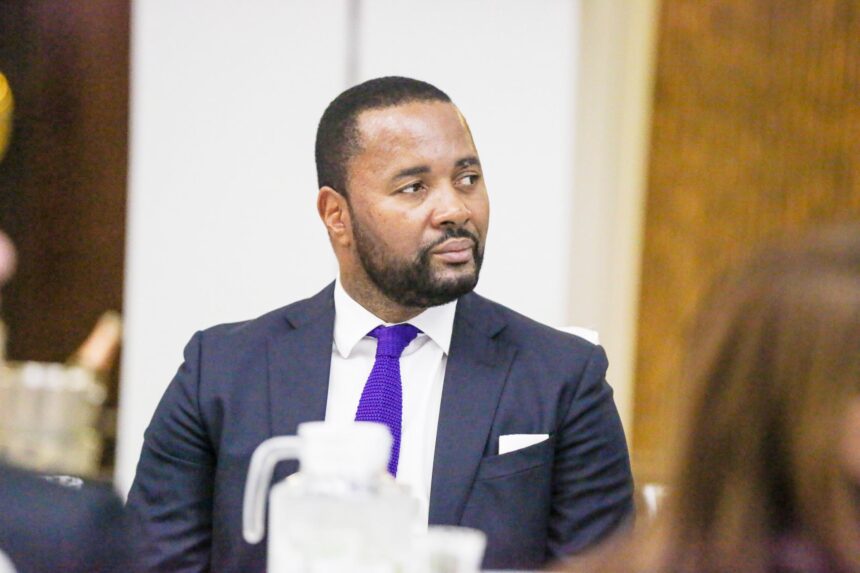When public enterprises’ minister Leon Jooste was appointed as founding minister of public enterprises, a daunting task lay ahead of him in reforming Namibia’s tax dollar-sucking parastatals, where bailouts are the norm, with little to no accountability.
However, for the first five years without public enterprises’ governance legislation in place, he had little room to manoeuvre or achieve any tangible reforms.
It was only in 2019 that the Public Enterprises Governance’ Act (PEGA) was passed.
The PEGA, which was created to ensure accountability and efficiency among SOEs, will now be amended to reflect the new realities.
Now, 10 years down the line, the governance of 18 commercial public enterprises and eight extra-budgetary entities in Namibia is set to change, following the full dissolution of the Ministry of Public Enterprises.
These State-owned Enterprises (SOEs), previously overseen by the Ministry of Finance and Public Enterprises, will now report directly to their respective line ministries.
This was confirmed by presidential spokesperson Alfredo Hengari in an interview with New Era on Monday.
This shift comes after President Netumbo Nandi-Ndaitwah announced her new Cabinet, and confirmed that all SOEs will now fall under line ministries.
Hengari said the change affects a total of 26 SOEs which had remained under central oversight since the original dissolution of the Ministry of Public Enterprises in 2022.
There are currently 77 public enterprises in Namibia. 51 report directly to line ministries, while 18 are commercial public enterprises, and eight extra-budgetary ones also report to the Ministry of Finance.
Hengari confirmed that Cabinet, led by President Nandi-Ndaitwah, has instructed the Attorney General, Minister of Justice and Minister of Finance to address all legal changes needed to implement the new arrangement.
The Public Enterprises Governance Act 1 of 2019 was introduced to improve how SoEs are run in the country.
Its main purpose was to regulate and manage these entities, ensuring accountability, transparency and financial sustainability of State-owned enterprises.
It was also aimed at ensuring that these entities were managed properly, and served the public interest.
Before, the Ministry of Public Enterprises oversaw many of these institutions. That responsibility was transferred to the Ministry of Finance and Public Enterprises in 2022.
Now, President Nandi-Ndaitwah is returning all SOEs to their respective ministries, and the law will be changed to reflect this new structure.
Accountability
Hengari said compliance and governance standards will continue to be enforced under existing laws, such as the Companies Act.
“Therefore, the return of State-owned enterprises to line ministries will not create any compliance vacuum or accountability challenges, and does not remove the legal responsibility for proper governance,” he outlined.
He emphasised that from the 77 public enterprises, 51 already report to their respective ministries. With that transition, all SOEs will now follow the same model.
When asked about the risk of political interference, Hengari said the President has made it clear that unethical conduct will not be tolerated.
“Therefore, any conduct that is contrary to the law, policies and rules will not be tolerated. Ministers are guided by the Cabinet Handbook, which directs them to act in the interests of the people of the Republic of Namibia, and not engage in any conduct that undermines their oath of office and the public good,” he added.
Nandi-Ndaitwah has repeatedly emphasised her zero-tolerance stance on corruption, and has warned against any behaviour that goes against public service values.
Governance
To prevent fragmentation in governance, Hengari said SOEs will continue to follow established policies, laws and rules, regardless of which ministry they report to.
“The relevant policies, pieces of legislation and the laws of the Republic of Namibia will guide the activities of the SoEs across different offices, ministries and agencies,” the press secretary elaborated.
He noted that financial reporting, audits and performance evaluations will now likewise be handled directly by the relevant line ministries.
On the question of whether there will be an independent oversight body established to monitor governance standards across all public enterprises, Hengari said no decision has been made yet.
“Any decision of that nature will be communicated accordingly. As stated earlier, the attorney general, the ministry of justice and labour relations, including the finance ministry, will deal with all outstanding issues,” he said.
However, he noted that SOEs are not operating in “no man’s land”, and are still governed by existing laws and regulations.
Sustainability
Addressing the financial struggles of some SOEs, Hengari said the president is committed to improving their performance.
The government plans to align SoEs with key national goals, including energy, agriculture, youth empowerment and education.
“The president has been saying that it shall not be business as usual, and all the activities of the administration are geared towards actualising the key priorities of the administration such as energy infrastructure development, agriculture and water, youth empowerment, natural resources’ beneficiation, creative industries’ development, quality education and many others,” he noted.



